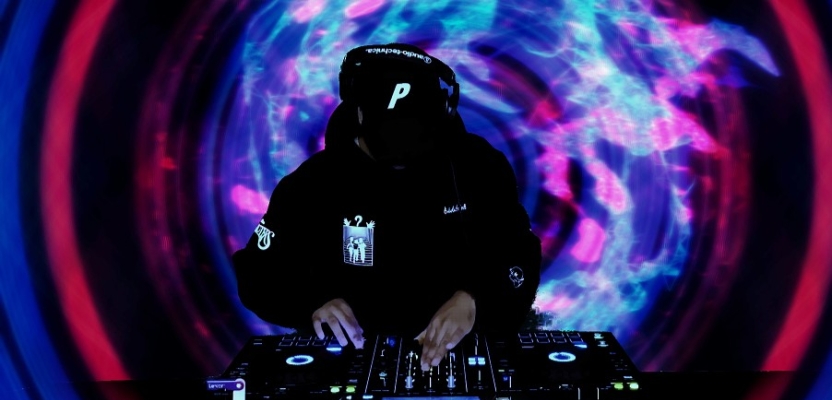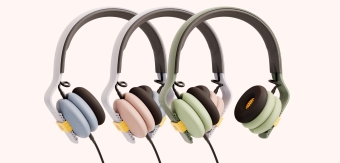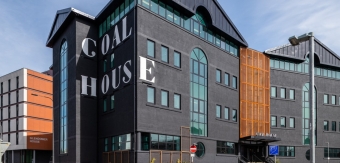Jamie Shaw is a freelance Motion Designer with a background in Fine Art, specifically abstract painting and drawing but his passion has always been in VJing.
Working initially within the events industry, he developed a specialism in projection mapping, technical delivery and creative content, before expanding more broadly into screen visuals for public, private and corporate live events.
Today we’ll be shining our member spotlight on him to discover (some of) the secrets behind his specialist techniques and kinetic visual compositions.
How did you get into the industry?
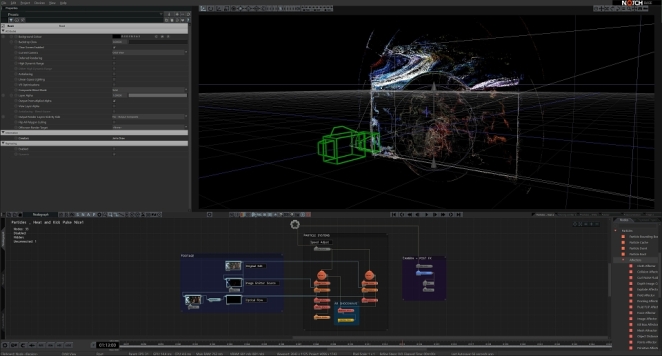
Through VJing at festivals and club nights. I started going to festivals in the early 2010s and also moved into a live/work warehouse community in East London around that time. A group of friends ran a stage at Boomtown and invited me to get involved. I have a background in abstract painting, so I was interested in the visual side of things anyway and got a chance to try out Resolume for the first time. I was instantly hooked!
So from there my friend and I started learning more about projection mapping, 2D and 3D animation and VJing, we set up Cursor Video in 2013 as a platform to share and promote our projects and before I knew it motion design with a focus in live events had become a career path. These days I am much more focussed on content creation but VJing remains a passion and my strongest work is often when I’m able to combine pre-production time with live performance.
Where are you based now and who do you work for?
I’m based in Newcastle, but I was based in Bristol for many years after London, so my client-base is spread between those two cities. Creating digital content is naturally suited to working remotely, and I tend to have repeat clients more than one offs. I’m self-employed and work for a variety of agencies, studios, labels and private clients, but almost exclusively within the live events industry.
If you weren’t in your current industry, what would you be doing?
Good question! Maybe something calm, like woodland surveys. In all honesty though probably something else visually creative.
Can you explain your creative process? What makes it unique?
That depends on the nature of the project really, if it’s content for a club night or festival stage, or for an artists’ tour - my approach is very playful. I just let the atmosphere and space in the music take form visually through experimenting.
I use Notch and Resolume for this and both are real-time and performance/events focussed softwares. If the project involves more narrative, like the choreographed scenic content for a theatre or dance production, it would be a case of discussing ideas with other departments, again with a good amount of playing around.
How would you describe your style?
I try to be as flexible as possible with styles as I’m almost always working in collaboration with other creatives. Responding to briefs is a critical skill for any designer or artist, as is communicating with your colleagues. Events production sits in-between many specialisms both technical and creative, so you need to be able to see opportunities and listen to other people's ideas.
That being said, it’s impossible not to have a style, my own stuff leans very much into the abstract and sci-fi/tech/industrial/grunge type looks. Lots of layering and depth and kinetic compositions.
Which individuals do you gain inspiration from? Do you have any heroes in the industry?
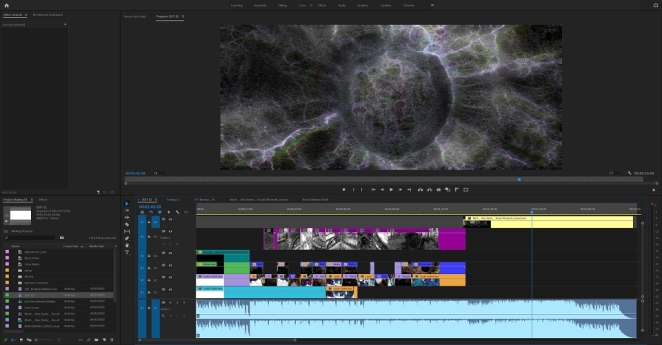
We’re [live events visuals] in a rapidly expanding field and there’s loads of great talent out there! Bloc 9 and the teams behind the stage design and visuals for IICON deserve a lot of praise. As do Black Box Echo, Boxcat and Comix.
What tips would you give to aspiring creatives looking for work?
Focus on building relationships with people you can connect with, even if a company looks and sounds great it’s the people you work with that make the difference.
What tips would you give to other professionals to get more clients?
Research the companies/people you think you’d love to work with and write to them properly, or call them, and tell them what you’re about. I think trying to create opportunities tends to have a longer lasting return than simply applying for contracts, once you build a relationship people come back to you.
What kind of tools/kit/software could you not do without?
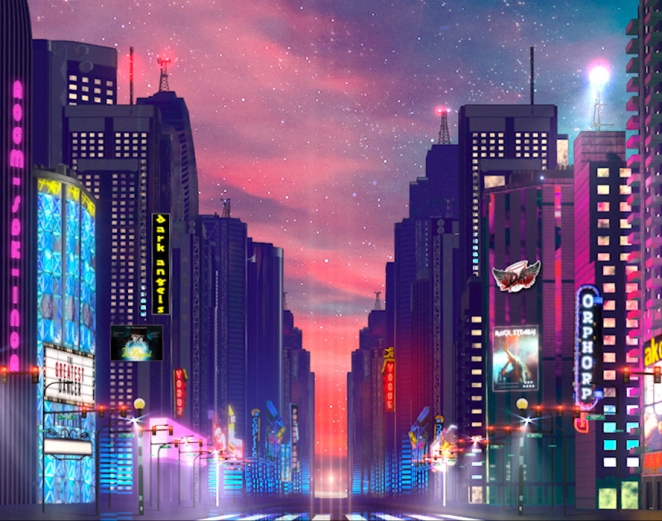
Notch and Resolume are my go-to tools for content creative and live performance. Cinema 4D, Adobe After Effects and Premiere have been my longest running daily tools and still get used regularly. If ever I get the chance to shoot real footage for a project, I’ll jump on it too.
What’s your secret to staying inspired and motivated?
The secret is simple. Stop trying to believe that you need to stay inspired or stay motivated! If you’re struggling with a brief, just get some space from it. Literally go outdoors and do something else for a while. If it’s self-led and you’re just not feeling it, just let that be okay. When you’re in a vocation you can trust that you’ll always gravitate back to it in the end.
What’s the work achievement you’re most proud of?
That’s a tough question, most things I’m proud of in some parts and am still second guessing myself in other parts.
What is the one thing that you would change about the industry?

Fairer pay between all the different specialist skill sets; creative, technical and build crews, involved in the festival industry. Many of the most creatively progressive festivals are built on the backs of 100s of skilled industry specialists who often make a loss themselves to make the show happen. While it can often be borne out of a passion for the event experience itself, it is exploitative.
Any websites, books or resources you would recommend?
The Little Prince by Antoine de Saint-Expúry

